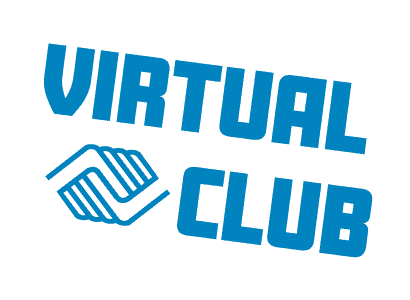“Must know how to operate a cash register”
“Experience in sales a plus”
“Should be proficient in Microsoft Office”
If you’re looking for work (especially your first job), you’ve probably noticed that most job listings require you to have specific skills. If you work in retail, you probably need to know how to use a cash register. If you work in a restaurant, you usually need to know how to handle food. While it’s important to have these specific skills (often called hard skills), don’t let not having them prevent you from applying. *Many of these skills you can learn on the job or during training and onboarding.
While hard skills are important, it’s equally (sometimes more) important for you to have soft skills (especially as you’re starting your career or landing that first job).
In fact, 89% of hiring managers believe “bad hires” typically have poor soft skills, according to a report by LinkedIn.
So what are soft skills?
Soft skills refer to a more general set of abilities that allow you to effectively interact with other people and achieve your goals. These skills include a wide range of qualities such as communication, teamwork, leadership, problem solving, and more. They can be more difficult to quantify, but soft skills are critical to achieving success.
Whether you’re new to the job market or looking to level up, developing these skills is essential. To help you out, we put together a list of 5 soft skills you need to help you be successful in the workplace:
Time Management

Time management is the ability to use your time productively and efficiently. Many jobs require you to balance multiple projects at the same time, so having good time management skills is important for completing your tasks and meeting your deadlines.
To develop time management skills, you need to know how to plan, prioritize, and set goals. Before you begin a task, plan out how you will complete it, and develop a schedule. Don’t be afraid to take breaks so you can re-energize yourself and avoid getting burnt out! If you have multiple tasks you need to complete, you should prioritize your tasks based on level of importance and how long each one will take.
If you struggle with procrastination, you’re not alone. In fact, 88% of working people admit to procrastinating every day, according to research from Gitnux Market Data. Starting a new task can feel overwhelming. Planning out a schedule for completing your task will make it easier to manage. First, prepare everything you need, and once that’s out of the way, you can dive in to the project. Don’t be afraid to ask for help if you need it.
Creative Thinking

Creative thinking is all about using your imagination and creativity to come up with new ideas and solutions to improve the world around you. Sometimes, people do things a certain way because of how they were taught or because “that’s the way we’ve always done it,” but that doesn’t always mean that’s the best way.
A creative thinker can look at things from a fresh perspective and proactively search for opportunities for growth. Whether you see ways to improve communication, workflow, or simple tasks, being a creative thinker can help improve efficiencies, save money, and initiate overall progress.
Some people might associate creativity with artistic talent, but being a creative thinker isn’t about being an artist. If you want to be a more creative thinker, be open to exploring new ideas and possibilities. Ask questions about the world around you, and let your imagination run wild. Not all of your ideas will be groundbreaking, but that’s OK! It’s all about thinking outside the box and discovering creative solutions to challenges.
Problem Solving

No matter where you work, problems are going to arise at some point. Without problem solving skills, it’s easy to become overwhelmed when you encounter unexpected challenges. You don’t need to have immediate solutions for everything that happens, but you should be able to asses the problems and find solutions using your knowledge, critical thinking, and judgment.
If you have strong problem solving skills, you’ll be able to overcome challenges both on your own and with a team of other people. When problem solving as a team, it’s important to be an active listener, offer your own thoughts and ideas, and come to a compromise.
Sometimes interpersonal problems can arise within a team or among colleagues, and a good problem solver should be able to respectfully solve those disagreements as well. The key is to use empathy and keep an open mind to others’ ideas. Remember that you are all trying to achieve the same goal. Being able to collaborate and work well with your colleagues will be beneficial to any job.
Communication

Communication skills are vital to any workplace. In order to collaborate on a project, give feedback, or just ask questions, you need to be able to clearly convey your message to others, and you should also understand what other people are communicating to you. Being able to effectively communicate will help you build strong professional relationships with your colleagues, supervisors, customers, clients, and anyone else.
Communication comes in many forms, including verbal, written, and aural. Having good verbal communication skills means you are able to speak clearly and confidently so others can easily understand your message.
In your daily life, you probably get more practice with verbal communication than with written, but being able to effectively communicate in writing is also important. To develop your written communication skills, practice writing regularly, proofread your work, read others’ writing, experiment with different styles, and be open to feedback.
Aural communication refers to active listening, which is another important skill for effectively communicating with others. To be an active listener, you have to fully engage with what the other person is saying. Focus on the speaker, maintain eye contact, and avoid getting distracted or interrupting the speaker. You should also ask clarifying questions and provide thoughtful responses to ensure you understand what they mean. Like many soft skills, communication skills can assist you both personally and professionally.
Networking

If you’re new the job world, you may not have ever thought about networking before. The phrase “networking event” may even bring to mind a large gathering of people handing each other business cards. However, networking is actually much broader than that, and if you know how to engage in it, you will find it can open new doors to exciting possibilities!
Networking helps you build social capital, which is the value you gain from positive connections with other people. Sometimes, getting a job (or another opportunity) is all about who you know. Building healthy relationships with teachers, coaches, and other adults in your life is important to your future success.
Be open to learning from and engaging in meaningful discussions with the people you know. As you build relationships with teachers and other adults, you will get to know them better, and they will also get to know you better. If they hear about an opportunity or experience they think you might be interested in, they can let you know about it. They can also write you a reference or recommendation letter for a job, internship, or college application, which may end up being the difference between you and another candidate.
Academic qualifications and other hard skills may be important, but don’t underestimate the power of these soft skills. They will help you overcome challenges and build meaningful connections, benefiting you in the job market and beyond. With soft skills, you can nail your job interview and impress your supervisors. Hone these skills, and they will become essential to you on your path to success!









